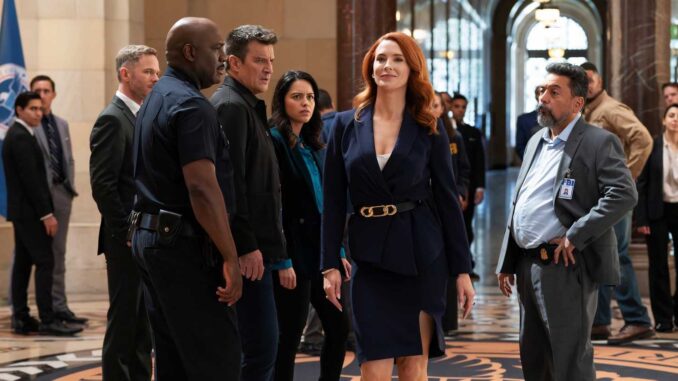
The long-running procedural drama The Rookie has always thrived on its ensemble cast, celebrating the triumphs and tribulations of the Mid-Wilshire LAPD. But like any show that delves deep into human nature, it has, over its many seasons, introduced characters who test the audience's patience, pushing the boundaries of likeability. For many, one character, in particular, became a consistent source of exasperation: Officer Celina Juarez. Introduced as Nolan’s free-spirited, intuition-driven rookie, her disregard for protocol and reliance on “vibes” often bordered on recklessness, earning her a contentious spot in the fandom. Yet, in its eighth season, The Rookie finally delivers a meticulously crafted arc, transforming Celina from a divisive figure into a testament to growth, offering its most hated character a compelling chance at redemption.
From her very first appearance, Celina Juarez polarized viewers. While her spiritual insights occasionally led to unexpected breakthroughs, more often than not, her methods felt like a direct affront to established police procedure. She was impulsive, prone to making leaps of faith based on vague feelings rather than concrete evidence, and often projected an almost arrogant confidence despite her glaring inexperience. Audiences watched through gritted teeth as she put herself and her training officer, John Nolan, in precarious situations, chalking up near-misses and procedural gaffes to a budding "sixth sense." Her early characterization, while perhaps intended to add a unique flavor to the squad, instead became a focal point of frustration, undermining the show’s often grounded depiction of police work and making her, for many, the most actively disliked character on the force.
The seeds of redemption for Celina were subtly planted in prior seasons, showing glimmers of her willingness to learn, albeit reluctantly. But it is in Season 8 that the show dedicates itself to a full, unflinching exploration of her character, driven by a particularly devastating case. Early in the season, a high-stakes hostage situation goes awry, not due to malice, but due to Celina's persistent reliance on an ill-defined "premonition" that leads her to disregard critical intelligence. The immediate fallout is severe: a fellow officer is gravely injured, and Nolan, her long-suffering TO, is forced to confront the limits of his patience and her stubbornness. This catastrophic event serves as a brutal awakening, stripping away Celina's defensive confidence and forcing her to confront the very real, tangible consequences of her methods.
The path to redemption is not a quick fix or a single heroic act, but a painful, methodical deconstruction and rebuilding of her approach to policing. Under Nolan’s newly rigorous guidance, and with the stern, albeit empathetic, oversight of Sergeant Bradford, Celina is essentially put back to basics. Her arc is illustrated through a series of episodes where she is forced to eschew her spiritual leanings in favor of painstaking grunt work: analyzing crime scene photos for hours, meticulously reviewing surveillance footage, and memorizing procedural handbooks. The show highlights her internal struggle: the visible frustration of fighting against her instincts, the humbling realization of her past mistakes, and the quiet dignity she finds in embracing the mundane but crucial aspects of her job. We see her studying, asking detailed questions, and, most importantly, listening with an open mind to the seasoned officers she once subtly undermined.
The ultimate illustrative moment of her redemption arrives not with a dramatic flourish, but with a quiet, hard-earned victory. In a complex cold case, which her intuition initially dismisses as unimportant, Celina meticulously follows a trail of seemingly insignificant data points, cross-referencing archives, and patiently building a case brick by brick. When her years of developed "gut feeling" does resurface, this time, instead of acting on it impulsively, she uses it as a guiding hypothesis, methodically seeking out and proving its validity through tangible evidence and sound police work. It is this grounded, evidence-backed approach that ultimately breaks the case, leading to a crucial arrest and preventing further harm.
This triumphant moment isn't just about solving a crime; it's about Celina earning the trust and respect of her peers, and more importantly, of herself. Her "woo-woo" nature is not entirely erased, but it is tempered and integrated into a much more disciplined, effective framework. The Rookie Season 8, by finally giving Celina Juarez the chance to shed her most grating qualities and mature into a truly competent and respected officer, demonstrates the show's commitment to character development. It reminds us that redemption isn't about being forgiven for a grand transgression, but about the long, often thankless journey of self-improvement, proving that even the most hated characters can, with the right catalyst and genuine effort, find their way to a well-deserved second chance.